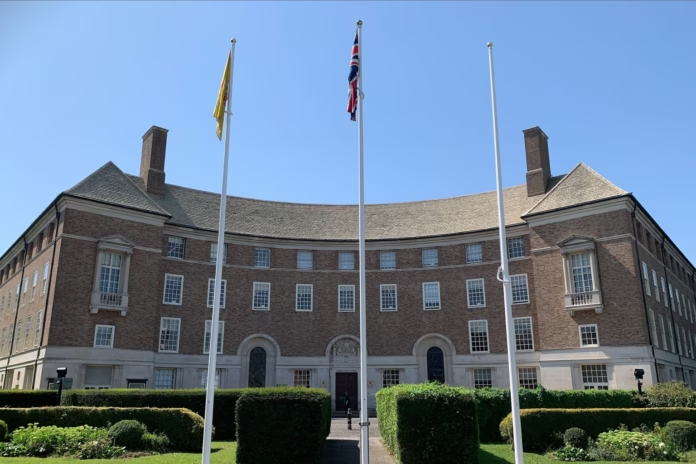
Surrey denies council tax ‘sweetheart deal’
Surrey County Council has denied claims that it reached a backroom deal with government officials that led to it dropping proposals to hold a referendum on a 15% council tax rise. During prime minister’s question time this week, Labour leader Jeremy Corbyn accused the government of giving Surrey a “sweetheart deal” after revealing a text from council leader David Hodge. Hodge said: “Surrey’s decision not to proceed with a 15% council tax increase was ours alone and there has been no deal between Surrey County Council and the government.”
Jump in council outsourcing
Local authority outsourcing spending rose 8% to £814m in 2016, according to new figures. According to the Arvato UK Outsourding index, the volume of deals also rose from 20 to 29, with a growing focus on smaller, more focused deals rather than long-term multi-process contracts. The average value of agreements fell by 25% year-on-year, with contract lengths falling by six months. Spending on outsourced IT jumped by 75% to £463m, according to the findings. Debra Maxwell, managing director at Avarton, said: “The sustained growth we’re witnessing across the sector reflects the growing pressures on local authorities to transform their operations, cutting costs while providing better services for citizens.”

IR35 rule change ‘requires emergency plans’
Councils and other public sector bodies should implement emergency action plans to avoid losing vital skills due to tax reforms due to be implemented in April, according to a contracting expert. The advice follows guidance from HM Revenue & Customs that invoices paid after 6 April for work carried out before that date will be subject to the new IR35 rules. Dave Chaplin, chief executive of website ContractorCalculator, said: “The proposed reforms are already starting to potentially cause irreconcilable damage for all involved but we are where we are, so I would advise any ill-prepared public sector body to heed our advice and carry out our action plan without delay.”
Fitch upgrades Nationwide rating
Ratings agency Fitch has upgraded Nationwide Building Society’s long-term issuer default rating. The bank has gone from “A” to A+ in a move that reflects a significant qualifying junior debt (QJD) buffer, which could be made available to protect senior obligations from default in case of failure. Fitch has also affirmed Nationwide’s support rating at “5” and support rating floor at “No Floor”. The outlook is stable.
Revaluation should be postponed, says Islington
Islington council has urged the government to drop forthcoming increases in business rates. The council is supporting a

petition from local business organisations calling on ministers to freeze the implementation of business rates revaluation until after the UK leaves the European Union. The council’s executive member for economic development, Asima Shaikh, said: “The decision by national government to massively increase business rateable values for local shops and businesses could have a devastating effect on the character of our community and force small and medium sized companies to close or move elsewhere.”
Funding partially restored to Scottish councils
The Scottish government has announced that councils north of the border will receive £160m more than previously expected. Revisions to the Scottish budget will see the restoration of £30m for capital investment. However, David O’Neill, president of the Convention of Scottish Local Authorities, said: “Whilst I absolutely welcome the reduction in the cut, the simple truth is that there remains nearly £200m of a cut to local public services and this is still not a good result, better but not good.”













